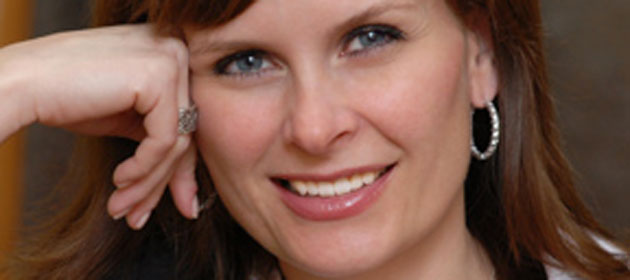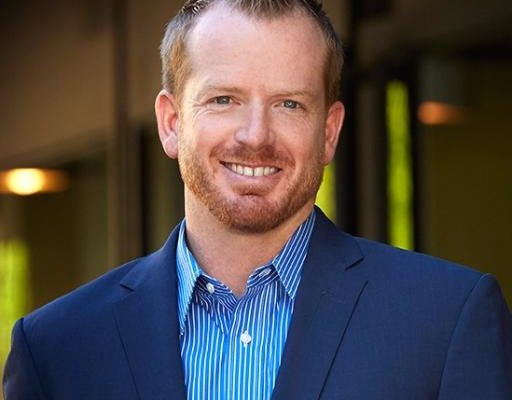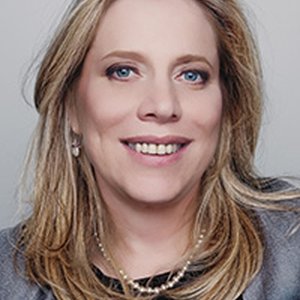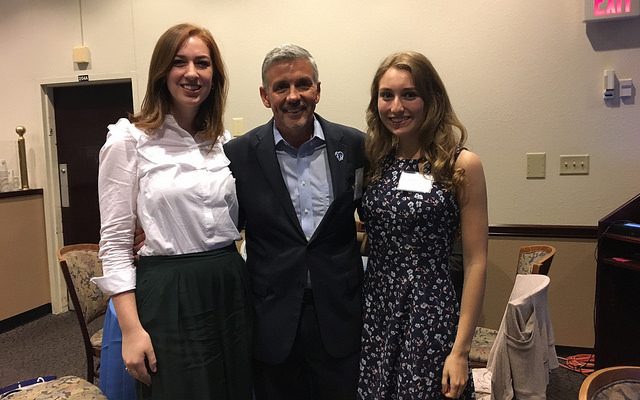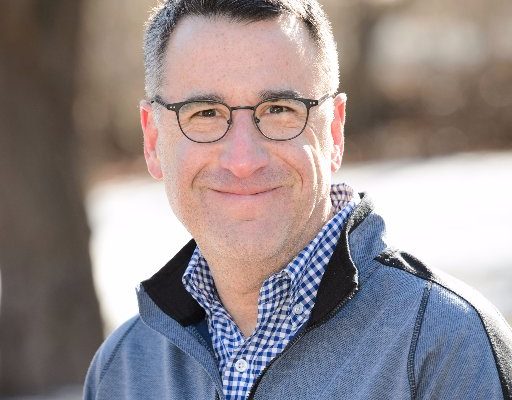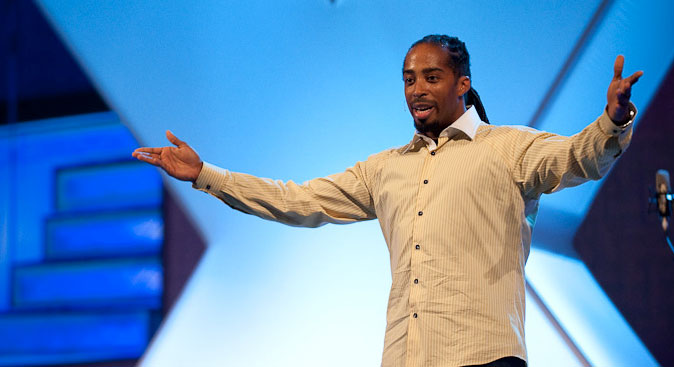Heineken recently invited us to open our world. If you haven’t seen it already, take time to watch! It will be the best 4 minutes of your day! This is what the Year of the Peer is all about!
Author: Leo Bottary
Leo Bottary’s Year of the Peer Update
Podcast: Play in new window | Download (37.9MB)
Subscribe: Apple Podcasts | Spotify | iHeartRadio | TuneIn | RSS | More
Leo Bottary is an author, keynote speaker, workshop facilitator, and thought leader on the topic of peer advantage. After eight years as an instructor for Seton Hall University, where he was named adjunct teacher of the year in 2015, he now serves as an instructor for Rutgers.
During his tenure at Vistage Worldwide, Leo Bottary led the rebranding of the company and directed a thought leadership initiative on the power of peers in business. This work resulted in a book he coauthored with Leon Shapiro titled: The Power of Peers: How the Company You Keep Drives Leadership, Growth & Success. Leo (and publisher Taylor & Francis Group) will release a new book in Spring 2018, which he’ll tell us more about on the show!
Thank you for giving the podcast your time and attention. We’d like to hear from you. Click here and tell us how the podcast can bring you more value.
Gini Dietrich on Influencers, Leading Virtual Teams, and Being Part of a Peer Group
Podcast: Play in new window | Download (29.2MB)
Subscribe: Apple Podcasts | Spotify | iHeartRadio | TuneIn | RSS | More
Gini Dietrich is the founder and CEO of Arment Dietrich, a digital marketing communications firm based in Chicago. She is the author of Spin Sucks, co-author of Marketing in the Round, and co-host of Inside PR. Gini is also the lead blogger at Spin Sucks and the founder of Spin Sucks Pro. Clients who have benefited from Gini’s forward thinking approach to communication have included Ocean Spray, Sprint, Denny’s, GE, and Abbott, to name a few.
Next week’s guest is Louis J. DeGennaro, PhD, president and CEO of The Leukemia & Lymphoma Society.
“I’m Surrounded By Idiots!”
If you’ve ever uttered Scar’s famous quote from the Lion King (as only Jeremy Irons can express it), I suggest you pause for a moment to think about what you said. Consider the possibility that the people you’re talking about are not idiots at all, you might be just treating them that way. Or, on the off chance they really ARE idiots, then why would you surround yourself with these people in the first place?
In either case, surrounding yourself with people you respect is your responsibility – it’s on you, no one else. Who you surround yourself with matters. As you assess progress against your goals for the back half of this year, take stock of the people around you. Are they contributing to your success, holding you back, or dragging you down? While you’re at it, ask yourself if you are contributing positively to the people who depend on you to lift them up. This is the time to course correct on both fronts.
Don’t be a Scar (or one of the hyenas for that matter). Here’s the scene from the movie that inspired Scar’s famous assertion. You can do better!
Ryan Foland on Engaging Your Peers: Listen more, talk less!
Podcast: Play in new window | Download (33.8MB)
Subscribe: Apple Podcasts | Spotify | iHeartRadio | TuneIn | RSS | More
Ryan Foland coaches leaders worldwide on the art of simplifying spoken and written messaging for greater impact. Ryan was recognized in 2016 by Inc. Magazine as a Top Youth Marketer and, in 2017, was named by Entrepreneur Magazine as a Top Personal Branding Expert. Ryan’s company InfluenceTree, specializes in helping individuals discover, build and grow their personal brands. Ryan hosts the radio show Get Notified on KUCI and is a gifted speaker on the topics of communication and personal branding. Ryan is also a sought after TEDx host, having worked with TEDxUCIrvine, TEDxSantaMonica, and most recently TEDxLA.
Next week’s guest is Arment-Dietrich CEO, Gini Dietrich.
Marian Salzman on Agile PR
Podcast: Play in new window | Download (32.5MB)
Subscribe: Apple Podcasts | Spotify | iHeartRadio | TuneIn | RSS | More
Marian Salzman is the CEO of Havas PR, U.S. Named one of the world’s top five trendspotters (bringing the term “metrosexual” to the world in 2003), Marian is one of the most-awarded female public relations executives in North America. Prior to joining Havas PR and the Global Collective, Marian was the Chief Marketing Officer (CMO) at Porter Novelli, CMO at JWT Worldwide, and Chief Strategy Officer at Euro RSCG Worldwide.
Author or coauthor of many books, her latest (written with the Havas PR team): Agile PR: Expert Messaging in a Hyper-Connected, Always-On World is now available.
Next week’s guest is Ryan Foland, Managing Partner, InfluenceTree.
Why Mentoring Matters
A number of years ago, I received an email from Reesa Greenwald, the director of the Seton Hall University Career Center, asking me to be a mentor in a program called CHAMP (Communication Honors Alumni Mentor Program). The program was actually launched in 2011 as the Communication Honors Associates Mentoring Program. I am a proud Seton Hall alum and was also serving as an adjunct faculty member at the time. The email was worded in a way that seemed to indicate that this was meant for people who lived in close proximity to the campus – as opposed to someone like me living in southern California. Just before I hit “delete” (assuming this email wasn’t meant for me), I reread it and thought to myself, “I could do this remotely. Maybe I’ll see if Reesa would be open to that.” Fortunately for me, she agreed to give it a try.
According to Paul Ward, the alum who spearheads this program: “CHAMP was designed to bring together successful alumni with current Communication students to share tips and practical advice on navigating the many career opportunities a degree from Seton Hall can offer. The response from the students and the mentors was overwhelmingly positive and the program allowed two generations of Pirates to develop both networking opportunities and great friendships. We’re looking forward to offering this program to even more Pirates as we move forward.”
Four years later, it appears our little experiment worked – especially for me. CHAMP mentors are matched with one student per year. I see to it that I meet with the student who is assigned to me in person at least once, but otherwise our conversations take place via Skype, Zoom, phone, email or text. I went into this hoping I could give back to the university and help some aspiring communication professionals. Turns out, I can say unequivocally that the benefits go both ways. I share my experiences and perspective, while they share their aspirations and keep me current.
A few weeks ago, I attended a CHAMP event on campus. I loved it! There was a great deal of talk about how the students benefit from the many alumni who give their time and share their expertise. While that may be true, I’m pretty sure the other alums share my sentiment about how much we all get in return. For me, it’s one more example of how 1+1 can = 3.
Pictured above are two of the students I was fortunate enough to work with and to whom I will be forever grateful and always available (l to r) Siobhan McGirl (Senior) and Sarah Auerbach (Sophomore), not pictured are graduates Phil Burrows and Mawuena Sedodo. Mentoring matters – for all involved.
Paul Michelman: Working Together In a Changing World
Podcast: Play in new window | Download (35.9MB)
Subscribe: Apple Podcasts | Spotify | iHeartRadio | TuneIn | RSS | More
Paul Michelman is editor-in-chief of MIT Sloan Management Review, serving as the guiding hand behind MIT SMR’s content strategy as it expands across both digital and print platforms. Prior to joining MIT SMR in December, 2015, Paul served as editor-in-chief of Safari Books Online. Before that, he spent a dozen years in leadership roles at two of the other premier names in management publishing: As Harvard Business Review’s executive editor and director of new editorial products, Paul launched a suite of digital initiatives over a 10-year period that today comprise the core of HBR’s online brand. And as executive editor of strategy+business, he spearheaded its digital make-over.
Next week’s guest is the CEO of Havas PR, U.S., Marian Salzman.
In the absence of communication, we fill in the gaps. Don’t!
I’ve been leading workshops for CEOs and key executives in recent months (23 workshops in all so far), where we talk about what it takes to be an even higher performing group or team. As you might imagine, effective communication emerges as critical on two fronts. 1) My workshops inspire conversations that would either never take place organically or would never happen in the larger context of the health of a group or team. Yet when they do take place, the resulting clarity that’s created often dispels erroneous perceptions. 2) When such communication doesn’t take place, it doesn’t leave a communication hole or gap because in the absence of communication, people insert their own narrative. And when they do, the narrative often creates tension, and is too often dead wrong.
Here’s a brief example: You arrange to meet a colleague at a restaurant at 1:00 PM. You’re waiting there and before you know it, it’s 1:20 PM – no call, no text, no communication. You text and call your colleague and receive no response. So what happens now? You probably start to speculate as to why your colleague is late. One of your assumptions is that (s)he simply forgot about the appointment. The longer the speculation continues, the more likely your blood pressure starts to rise, as you become increasingly annoyed by your colleague’s forgetfulness, even though you have no proof that anyone forgot about anything. You learn later that your colleague’s mother fell ill and had to be rushed to the emergency room – a bit more important than your appointment. Now you feel terrible. The hope here of course is that you didn’t go off on your colleague before (s)he had the chance to share what happened.
While this is a rather simple example, imagine the angst, misunderstanding, and resentment that can be caused when people fail to communicate with one another over the longer haul. Among the five factors of high-performing groups or teams is valuable interaction – interaction that’s fueled by effective communication. The solution: Communicate more and, in the absence of good communication, fill-in the gaps less. Resist your tendency to create your own narrative when one hasn’t been provided for you. It will reduce the stress level for you and your peers, and will likely open new avenues of opportunity.
Sekou Andrews – Making the Whole Greater Than the Sum Of Our Smarts!
Podcast: Play in new window | Download (36.0MB)
Subscribe: Apple Podcasts | Spotify | iHeartRadio | TuneIn | RSS | More
Sekou Andrews is an elementary schoolteacher turned actor, musician, national poetry slam champion, entrepreneur, and now the world’s leading Poetic Voice. On any given day, Sekou may deliver an original talk for international marketing executives, give a keynote speech at a leadership conference, or perform pieces for Barack Obama in Oprah’s backyard. His work has been featured on such diverse national media outlets as ABC World News, MSNBC, HBO, Good Morning America, Showtime, MTV and BET. Sekou does more than inspire us with his story; he inspires us with our story. You can learn more about Sekou at http://sekouandrews.com and http://rockstarspeakersecrets.com.
Next week’s guest is Paul Michelman, Editor-in-Chief, MIT Sloan Management Review.



